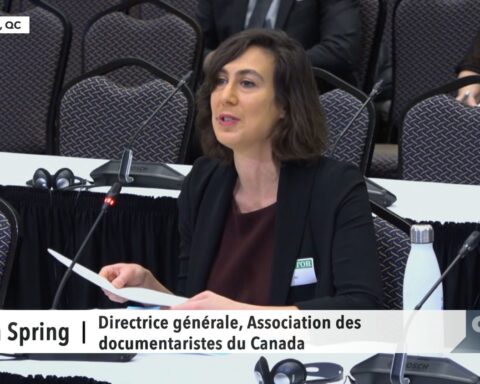(UBB: utter Bell blarney)
Oligopoly (def’n): an economy structured around a few suppliers’ dominant actions on prices and competitors.
Communications is our apple pie. How fitting then that typically complacent Canadians were driven to an overnight deluge of petitioned protest over the Internet ‘usage-based billing’ brouhaha. Since the Internet is a time and space binding technology, it’s therefore integral to the Canadian fact of our vast but modestly populated nation. Where else would you find politicians publicly and so swiftly weighing in over nerdy issues like bandwidth caps?
But this Canadian fact means competition in big media undertakings is rare. It’s why we’re often held captive to a cabal of the few with the lead policies being driven by the ‘one’—in this case, Bell Canada. For as long as most of us have been alive, Bell has held sway over our economy and communications infrastructure. With telephony and then cellular. With the Internet and now again with television in the CTV re-purchase. And always they’ve held sway over their handmaiden, the CRTC.
Thanks to public policy, Internet competition was given a boost in 2006. Start-up ISPs like Yak or TekSavvy soon gave their customers a deal of Internet usage capped at 200 gigabytes. This made Bell service look pretty bad. While Bell was forced to give these indie ISPs wholesale access to their networks, their own basic caps remained miserly—from 2 to 25 GB (use more and you’re hit with a huge bill of two bucks a gig). Rather than play the competition game and change their packages accordingly, Bell instead used the oligopoly card and flew some voodoo logic at the CRTC to try and bring everyone else in line.
In other words, screw competition. And screw Industry Canada’s directive to foster innovation. Bell’s argument? That the Internet is a finite, expensive utility like gas or electricity requiring a meter on usage. So they demanded two things from the CRTC: that the indies, whose users have been demonized as Internet hogs, pay more to access the Bell network, and that they must use the same gouging Internet caps used by Bell (and by Rogers and Shaw).
“Metering” is obviously a disincentive to usage, perhaps desired by Bell because it’s easier than keeping pace with the upgrades, and it keeps eyeballs on their other property, CTV. But so far, few are buying the utility analogy except the CRTC. Yes, net traffic has shot up enormously—some 40 to 50 per cent in recent years, putting a ‘strain,’ Bell claims, on its networks. But by all analyses, per gigabyte costs are really only about 3 to 10 cents. And bandwidth growth has been well offset by more efficient and powerful backbone technology, and any future scarcity in the system could be handled by upgrades that are getting cheaper with time. Moreover, according to Hugh Thompson from the website Digital Home, Bell, Shaw and Rogers are presently charging a whopping $2 to $5 per gigabyte on networks that are faster than they were four years ago. In the end, the mark-up amounts to about 10 to 50 times what it’s costing them. Ouch.
The CRTC bought Bell’s two-step hook, line and stinker, snapping their own credibility so thoroughly as to turn Tony Clement into something few ever thought would be possible: a folk hero.
One could say we expect Bell and their ilk to be rapacious, trying to turn net prices into the horror of mobile billing. But we should not expect our regulator to be their enabler. We should demand that they do their research sufficiently enough to at least question the economics here. In the end, I think we’re all caught in a contradictory moment caused by the vacuum of not having a coherent national digital strategy.
Such a strategy would see Heritage and Industry ministries share an integrated vision and a set of policies to drive innovation and content creation. After all, if you’re a producer or filmmaker, you practically can’t fund anything without an online platform. Producers are being told over and over again to drive people to the net or perish. Why bother if no one will show up?
My recommendation? Overhaul the Commission once and for all; get rid of the pocket-lining practices and fully debate things like fair Internet usage. Otherwise we’re losers to the future. As Master Switch author Tim Wu phrased it, “A nation that spends its time worrying about bandwidth caps is not a nation that leads.”











